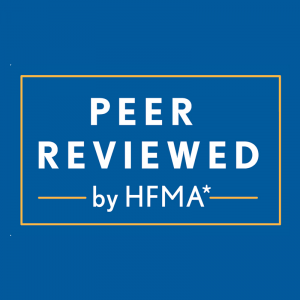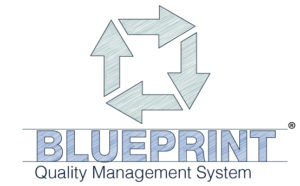As we all know, healthcare is changing at a rapid pace. At the heart of this change, healthcare organizations can no longer simply deliver healthcare. Rather, we must deliver value. We are to improve clinical outcomes at lower costs while improving the patient and family experience. Of course, this must also be done profitably so that we can continue to support our overall mission of caring for the population we serve. To add to it, the challenge reimbursement rates (Medicaid and Medicare) are declining.
To address this challenge, Froedtert Health has embraced a Value Based Care Initiative, which is aimed at reducing cost and improving revenue in several key areas:
• Labor
• Non-labor
• Clinical Documentation Improvement
• Clinical Operations
• Physician Operations
• Human Resources
• Revenue Cycle
To put it plainly, as Revenue Cycle professionals, we must optimize our performance and gain efficiencies in everything we do. One such measure within the Revenue Cycle includes implementing technology to obtain electronic claim status (276/277) transactions. The transactions replace the manual staff effort necessary to place phone calls or check claim status via websites. The 277 responses that require further efforts are routed to queues for the follow-up, while responses that indicate no manual effort is needed, such as claims for which payment has recently been issued, are not touched by the follow-up staff. The follow-up staff now can focus their time on resolving the most difficult accounts. These electronic transactions were a contributing factor to Froedtert Health’s drop net day’s revenue; we have seen an outstanding decrease from 49.6 days in May 2012 to 37.2 days as of April 2015.
Additionally, to ensure claims are coded properly, we recently completed a Charge Capture Assessment. The assessment addressed all of the key areas that were coordinated through our Revenue Integrity Team and included:
• Analysis of CDM CPT/HCPCS and UB codes
• Identification of new charge line items to be added
• Analysis of key coding functions and processes
• Analysis of charge capture tools
• Walk-through of department specific charge capture and reconciliation processes
The team developed a methodology to track revenue, along with the associated work plans and education of department leaders and staff. Froedtert Health has seen a significant increase in net patient revenue as a result of this assessment, which has been sustainable.
No doubt, we live in challenging times. Given payment pressures, the increasingly complex regulatory environment, shifting technologies, and demands for improved customer service, revenue cycle management is difficult for even the most driven organizations. We must continually look for innovative ways to optimize our performance in all areas of the revenue cycle while exploring ways to cut costs and ensure we are managing declining reimbursements. What are you doing to meet the challenge head on?
About State Collection Service, Inc.
Since 1949, State Collection Service has provided quality collection service to countless healthcare organizations.
Through experience and innovation, State Collection Service has grown to become a tremendously credible and nationally-recognized collection agency offering services from pre-registration to bad debt. It is upon the basis of ethical behavior and a dedication to integrity that each State Collection Service employee works to uphold the company’s vision – Partnerships for a Lifetime.
*This article first appeared in “A State Collection Service, Inc. Newsletter Volume 21, Issue 2, Second Quarter 2015”















